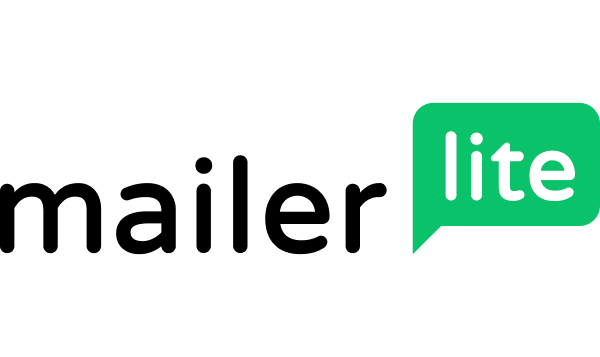Kit (formerly ConvertKit) Pricing: All Plans & Costs Breakdown
Capterra, G2, Trustpilot, and Reddit to create an objective evaluation. Learn more about our review methodology
Kit (formerly ConvertKit) has built its reputation as the email marketing platform designed specifically for creators—bloggers, YouTubers, course creators, podcasters, and online entrepreneurs who prioritize audience relationships over complex pricing and feature tiers.
Unlike traditional email marketing services that charge for every feature, Kit’s pricing philosophy centers on simplicity: pay based on your number of subscribers, get unlimited emails, and access the tools you need to grow.
But here’s what makes Kit’s pricing unique: it scales with your success. Starting completely free for up to 1,000 subscribers, the Kit platform grows alongside your creator business without the surprise overage fees or send limits that plague other email marketing tools. However, as of September 8th 2025, Kit raised its prices—some users are now paying up to four times more than before.
This guide breaks down exactly what you’ll pay at each stage of growth, from your first subscriber to enterprise scale, including the hidden costs competitors don’t mention upfront.
Kit Pricing at a Glance
Plan
Price
Subscribers
Email Sends
Key Features
Newsletter (Free)
$0
Up to 10,000
Unlimited
Basic email editor, landing pages, forms
Creator
From $33/mo*
1,000+
Unlimited
Automations, integrations, premium support
Creator Pro
From $66/mo*
1,000+
Unlimited
Advanced reporting, referral system, team support
Enterprise
Custom Quote
100,000+
Unlimited
Dedicated account manager, tailored setup
*Prices increased in September 2025
Kit Plans & Costs Reviewed
Kit provides three tiers: Newsletter (free) for starters, Creator for growing audiences, and Creator Pro with advanced tools.
Newsletter Plan (Free)
Feature
Limit
Subscribers
10,000
Monthly Emails
Unlimited
Users
1
Templates
Basic only
A/B Testing
None
Support
Email only
When I first started exploring Kit, Kit’s free plan caught my attention immediately. It’s perfect for creators just starting out—bloggers, freelancers, or small side projects that want to test email marketing without upfront costs.
You get up to 1,000 email subscribers and 12,000 monthly emails, which honestly feels generous compared to what I’ve seen from competitors. You’ll need a confirmed email address to get started, but setup is straightforward.
However, I quickly discovered the limitations once my list started growing. With only one user, basic email templates, no email A/B testing, and email-only support, you’ll hit walls fast. The most common upgrade trigger I’ve noticed? It’s usually when you reach that 1,000-subscriber limit or realize you desperately need automation features to create a proper welcome sequence.
Creator Plan
Feature
Limit / Availability
Subscribers
1,000+ (scales with pricing)
Monthly Emails
Unlimited
Users
2
Templates
Full library
A/B Testing
Basic subject line testing
Support
Email + Community support
Automations
Visual automation builder
Integrations
Shopify, Zapier, and more
The Creator Plan is where things get interesting for your marketing efforts, though the recent price hike has changed the equation. What used to start at $15/month now begins at $33/month for 1,000 subscribers.
I’ve found it’s still best suited for small businesses and growing creators who need more than the basics but aren’t ready for enterprise-level tools. What sold me initially was the unlimited email sends—no more counting sends or worrying about overages like I had to with other platforms when running email campaigns.
The visual automation builder became my favorite feature, letting me create automated email sequences to nurture subscribers at scale without the complexity. The tagging system helps organize subscribers effectively based on their interests and behaviors. That said, you’re still limited to one user by default, the reporting is pretty basic, and A/B testing only covers subject lines.
From what I’ve observed, most users make the jump to Creator Pro once their list grows beyond 5,000–10,000 subscribers and they need more advanced features to optimize their strategy—though that upgrade is now significantly more expensive than it was before September.
Creator Pro Plan
Feature
Limit / Availability
Subscribers
1,000+ (scales with pricing)
Monthly Emails
Unlimited
Users
Multiple team members
Templates
Full access + advanced customization
A/B Testing
Advanced (subject lines + content)
Support
Priority email support
Automations
Advanced workflows + integrations
Analytics
Deliverability reports, subscriber scoring
Extras
Referral system, Facebook Custom Audiences
The Creator Pro Plan is where Kit really shows its depth, though the price increase hits hardest here. What used to be $45/month now starts at $66/month, and increases compound as your list grows.
I’ve seen it work brilliantly for scaling businesses, agencies, and professional creators who need advanced functionality. The subscriber engagement scoring alone changed how I think about my email list—suddenly, I could see who was truly engaged versus just taking up space.
What really justifies the higher cost for me? The advanced features like A/B testing that goes beyond subject lines, Facebook Custom Audiences integration, and that built-in newsletter referral system for growing through word-of-mouth.
These aren’t just nice-to-haves; they’re essential for maximizing ROI once you’re past the beginner stage. You can even connect your own custom domain for branded sending, which helps with deliverability and professionalism.
Kit Hidden Fees & Extra Costs
Let me be upfront about the “hidden” costs I’ve encountered with Kit, which have become even more painful since the September price increase. While their pricing is more transparent than some competitors I’ve tried, there are still surprises.
The biggest one? Your monthly bill rises automatically when you cross subscriber thresholds like 1,000, 2,500, or 5,000 contacts. I learned this the hard way when my bill jumped unexpectedly after a successful lead magnet campaign—and with the new pricing, these jumps are much steeper.
Features I assumed would be included—like advanced analytics, referral programs, or deliverability reporting—actually require upgrading to Creator Pro. If you need transactional emails for order confirmations or receipts, those are billed separately in blocks, which added another line item to my budget I hadn’t planned for.
The platform does, however, support free migration from other services, which helps offset some initial switching costs. Unlike some competitors that charge a transaction fee for paid newsletters, Kit doesn’t take a cut of your revenue, though the higher base pricing might offset this benefit.
Kit Pricing by Subscriber Count (Post-September 2025)
Subscribers
Creator Plan
Creator Pro Plan
1,000
$33
$66
3,000
$50
$83
5,000
$75
$116
10,000
$116
$158
15,000
$141
$208
25,000
$166
$233
55,000
$316
$433
Looking at this table makes the price increase crystal clear—at 10,000 subscribers, you’re paying nearly 50% more than before. At higher tiers, the impact is even more dramatic.
One thing to note: you can save about 16% if you pay annually instead of monthly, which helps soften the blow of the new pricing somewhat. Kit offers two paid plans (Creator and Creator Pro) plus the free tier, each designed for different business needs.
Kit vs. Competitors: Which Costs Less?
If you’re a beginner in email marketing, Kit vs. Mailchimp is an evident comparison. I used Mailchimp before switching to Kit, so I can speak to the differences firsthand. Mailchimp’s free plan now caps at just 500 subscribers and 1,000 monthly emails—half of what Kit offers.
While Mailchimp has a broader template library and deeper ecommerce integrations (which I miss sometimes), Kit’s value proposition has shifted with the recent price increase.
The unlimited sends on Kit’s paid tiers still appeal to me, as I was constantly watching my send count with Mailchimp. However, with Kit’s new pricing, the cost difference has narrowed considerably. At 5,000 subscribers, Kit’s Creator plan now costs $66/month versus Mailchimp’s Essentials at $35/month.
For solopreneurs focused on simplicity, Kit might still win, but the price advantage has largely evaporated. One area where Kit maintains an edge: unlimited landing pages are included in all paid plans, while Mailchimp limits these on lower tiers.
So, what about Beehiiv vs. Kit? The first one has been tempting me lately with its sleek design and built-in monetization options—and Kit’s price increase makes it even more attractive. Several creator friends have made the switch since September. When I tested it, Beehiiv felt less mature in automation and integrations compared to Kit, but the price gap has widened significantly.
Kit’s Creator and Creator Pro plans still provide stronger workflows and broader third-party app support through the Kit app store, which matters for long-term scalability. But with some Kit users now paying four times more than before, Beehiiv’s pricing advantage is hard to ignore.
My take? If you’re price-sensitive and running a media-style newsletter, Beehiiv now looks much more appealing. Kit’s automation advantages need to really matter to justify the premium.
Finally, the budget-friendly comparison: MailerLite vs. Kit. The first one almost won me over with its pricing before, and Kit’s price increase makes the comparison even more stark. Their free plan covers the same 500 subscribers and 12,000 emails as Kit but includes automations and advanced design tools that Kit reserves for paid tiers.
Where Kit used to win me back was with creator-focused features at a reasonable premium. But now? At 5,000 subscribers, MailerLite costs $35/month while Kit’s Creator plan is $75/month—more than double. The visual automation builder, referral system, and subscriber scoring are still valuable, but I’m honestly questioning whether they’re worth paying 2-3x more.
If your main concern is price, MailerLite is now the clear winner. However, MailerLite includes their branding on free plans while Kit branding can be removed even on the newsletter plan.
Is Kit Worth the Price?
Business Type
Recommended Plan
Monthly Cost
Best Alternative
Startup
Newsletter
$0–$7
Sender
Small Business
Creator
$15–$44
MailerLite
Ecommerce
Creator
$29–$69
Klaviyo
Agency
Creatore Pro
$29+
ActiveCampaign
Enterprise
Creatore Pro
$500+
HubSpot
After using Kit for several years, I’m conflicted about whether it’s still worth the price after the September increase. If you’re a creator, blogger, or small business that needs Kit’s specific features—the visual automation builder, creator-focused integrations, and clean interface—it might still be worth it. The Free plan is still OK, but scaling up now requires a much bigger budget commitment.
However, I’ll be more blunt than before—with prices up to four times higher in some cases, Kit is no longer the obvious choice for creators. If you’re price-conscious, MailerLite offers similar functionality at half the cost.
Sender is another strong contender here, particularly for startups who need generous free limits and predictable scaling costs. If you run an ecommerce store, Klaviyo provides better value for product-based automations.
The price increase has fundamentally changed Kit’s position in the market, moving it from “affordable creator tool” to “premium platform with a premium price tag.” Consider a yearly subscription to save money if you do decide to stick with Kit.
Kit Pricing FAQs
From my experience, Kit’s main limitations have become much harder to justify at the new price points. The free plan’s cap at 1,000 subscribers and 12,000 emails per month felt restrictive once my audience started expanding, and now the jump to paid plans is steeper.
I’ve also been frustrated that advanced features like subscriber scoring and referral programs are locked behind the Creator Pro paywall—which now costs significantly more.
The September price increase is the elephant in the room. Some users are paying up to four times more than before, which fundamentally changes the cost-benefit analysis. Compared to Sender or Beehiiv, Kit’s limited templates and design options feel even more constraining when you’re paying premium prices.
Kit’s subscriber-based pricing model is straightforward but can surprise you—especially after the September 2025 increase. Your monthly cost grows with your email list size—the Creator Plan starts at $33/month for up to 1,000 subscribers (up from $15), while Creator Pro starts at $66/month (up from $45).
What caught me off guard initially was how pricing jumps at specific thresholds, and these jumps are now much more dramatic. This makes Kit somewhat affordable when you’re starting but potentially very expensive with larger lists. I’ve had to completely recalculate my email marketing budget.
Based on my experience and the recent price changes, Kit is worth the investment only if you’re a creator or small business that specifically needs its unique features and can afford the premium pricing. The free plan still gives you enough runway to test the platform properly, but be prepared for sticker shock when you upgrade.
For many creators I know, the price increase has been a dealbreaker. At 10,000 subscribers, paying $69/month instead of the old $47/month adds up to nearly $300 extra per year. For large ecommerce stores or businesses needing advanced customer data tools, Klaviyo or ActiveCampaign now offer better value.
And for budget-conscious creators? MailerLite, Beehiiv, or Sender provide 70-80% of Kit’s functionality at a fraction of the cost—with Sender being particularly attractive for those who want the most generous free tier available.
- Hands-on testing across multiple email marketing tools
- Fair comparisons using a unified evaluation process
- Insights verified with real user reviews from trusted sources
- No sponsorships or affiliate ties
- Clear, unbiased scoring and methodology




